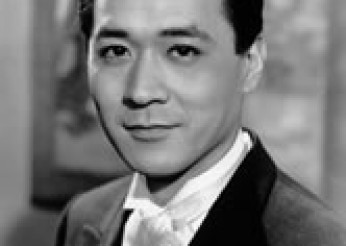His scores were cynical, sophisticated and intelligent. In them he celebrated freedom of love, treating it as 'just one of those things'. Often provocative and behaving quite irresponsibly, with an unpredictable temperament and very gay, he will always remain the symbol of that “lively” decade
Legendary composer Cole Porter’s life seems to be part of a Francis Scott Fitzgerald’s novel. Especially if we remember the scene from Luhrmann's remake of The Great Gatsby in which Gatsby is trying to charm Daisy by decorating Nick's house in an explosion of white flowers, pastel-colored macaroni and other sweets. “Do you think it’s too much?”, Gatsby asks his friend Nick. “I think it's what you want”, replies Nick politely. Such was Porter's life. There was too much of everything in it. Too much luxury, too many flowers, and too many beautiful men and women. But those were the very things he loved. Such were the 1920s in which he experienced his artistic peak. And such were his scores. Cynical, sophisticated and intelligent. In them he celebrated freedom of love, treating it as 'just one of those things'. Often provocative and behaving quite irresponsibly, with an unpredictable temperament and very gay, he will always remain the symbol of that “lively” decade. But unlike most of his colleagues from the Tin Pan Alley era, Porter was not a poor bohemian. He had been lulled into the bon vivant atmosphere of the Parisian chic, thanks to his rich parents who had accumulated their wealth in speculations with coal and timber. With the help of his mother, as a ten year old wunderkind he composed a full operetta (text and music). During his studies at the prestigious Yale, he wrote numerous songs, among which the popular 'Bingo Eli Yale' is still considered a sort of a student anthem. At the age of 25 he wrote his first Broadway musical comedy America First, in the program booklet described as a 'patriotic comedy opera'. Its main star was Clifton Webb, but was shown on Broadway for only two weeks. Partly due to disappointment, partly because of his adventurous spirit, he soon left his home country and signed up for the French Foreign Legion. Legend has it that while marching through North African deserts he carried a portable piano on his back, in order to entertain the legionnaires with his improvisations. Either way, the French Government awarded him Croix de guerre. And when World War I began, he was relocated to a military school in Fontainebleau. Nevertheless, he spent most of the time in his luxurious and extravagant apartment which became a social Mecca for the Parisian art and politics elite. Once he hired the entire troupe Ballets Russes to entertain his guests. These crazy years gave birth to his musical Paris, which enabled him to return to Broadway. It includes the cult song 'Let's Do It, Let's Fall In Love' performed by Irene Bordoni, which has been reused for many years ever since - from beer commercials to Allen's film Midnight in Paris. That same Porter's 'lively' Parisian temperament was captured in the musical comedy Fifty Million Frenchmen with the legendary song 'You've Got That Thing'. This was followed by famous musicals Kiss Me Kate and Jubilee, both including an array of hit songs. He also worked in Hollywood, from Born to Dance with James Stewart, in which Virginia Bruce performs the famous I've Got You Under My Skin, better known later through Frank Sinatra's version, to High Society with Grace Kelly, Bing Crosby and Sinatra, featuring his last big hit (code: True Love). In the fictional biopic Night and Day Porter he was portrayed by Cary Grant. His biography will later serve as inspiration for De-Lovely starring Kevin Kline. But if Night and Day was a bad tragedy, De-Lovely turned out an non-humorous farce, more like a flat champagne rather than a lavish explosion of flowers placed on the composer's legendary Steinway, which now decorates the lobby of the New York Waldorf-Astoria Hotel. (Dragan Rubeša)
